Denver Premises Liability Defense Lawyers
Denver Civil Defense LAWYERS
As a Denver business owner, you have a duty to maintain your property in a safe condition and to remedy any hazards that may cause a risk of injury to people who enter.
Unfortunately, slip-and-fall accidents do happen, despite your best efforts to safeguard your visitors and guests. Still, these incidents do not have to destroy your business: You can defend your business against the claims of a slip-and-fall victim. Our attorneys at the Thomas Law Firm can tell you more about a defense strategy, but an overview of your legal options may be helpful.
Contest the Claims
A victim must establish key elements of premises liability in a slip-and-fall claim, including the existence of a legal duty, failure to comply with the duty, and a link between the breach and the resulting injuries. The plaintiff bears this burden, not you. If you can present evidence that counters any element of a premises liability claim based upon negligence, you can either limit or defeat the case against your business.
Actual or Constructive Notice
Premises liability cases are unique under the theory of negligence because it is necessary for a claimant to prove that you had notice of the hazardous condition that caused the accident. For example, you cannot be held liable for the victim’s injuries if he or she slipped on a puddle that was created a few moments before the fall. You can defend the allegations by showing that you did not actually know about the spill because you did not see it in time to clean it up.
Constructive notice is also a defense option: This concept focuses on what you should have known about the dangerous condition, based upon when it appeared and how long you had to remedy it. In the above example, you did not have constructive notice of the spill before it caused a slip-and-fall incident. However, if it sat for an hour or more without taking action, you did have constructive notice – regardless of whether you did actually observe it.
Comparative Negligence
Under the theory of comparative negligence, a victim’s financial recovery may be limited if he or she was partially at fault in the injury-causing accident. In premises liability cases, this rule operates to hold claimants responsible when their own actions contribute to the slip-and-fall incident; their compensation is reduced by the percentage of fault attributable to them. If a victim’s own fault is 50 percent or more, comparative negligence rules bar any monetary damages.
Colorado’s Limitation on Damages
Under state law, a plaintiff’s recovery amount is limited by a statutory cap on non-economic damages. Though the base amount as of the statute’s effective date was $250,000, this figure has been adjusted for inflation annually and is much higher today. Note that, if a claimant presents clear and convincing evidence that a higher amount would be just, the statutory cap is $500,000 – also adjust for inflation. The statutory cap only applies to such damages as pain and suffering, emotional distress, and diminished enjoyment of life. It does not apply to economic damages.
Schedule a Consultation with a Denver Defense Lawyer Today
There may be additional defense options available based upon the specifics of your case, so please contact the Thomas Law Firm to discuss your situation. Our attorneys have assisted many Denver businesses in defending against premises liability claims, and we will fight to protect your interests.

